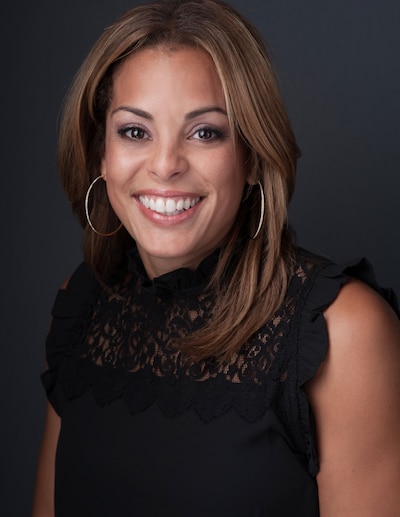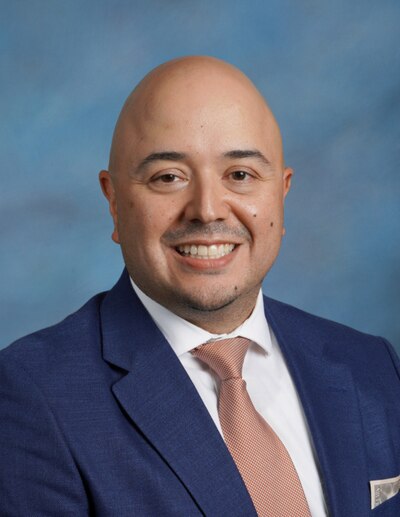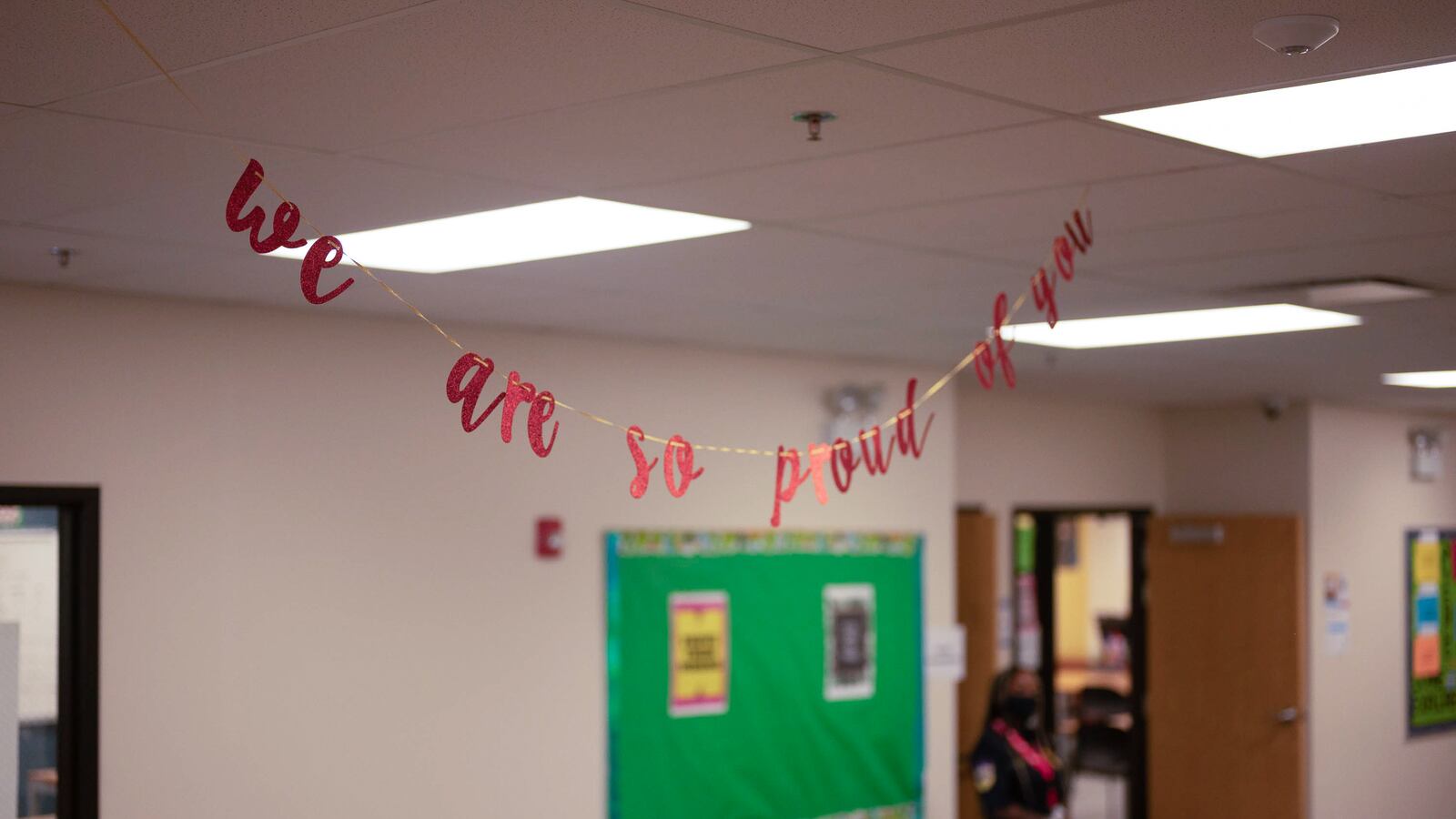The pandemic’s traumas and isolation spurred a mental health crisis among children — and an unprecedented reckoning about the role schools can and should play in tending to the mental health needs of students and staff members.
The Illinois legislature recently backed proposals allowing students and educators to take time off for mental health reasons. With federal COVID relief dollars, some schools across the state are trying to bring more help for students in-house – from one-on-one therapy to wellness screenings to new social and emotional learning curricula. But such efforts can be uneven from school to school and district to district, and work remains to better track which approaches are paying off for students.
Chalkbeat spoke with five finalists for the 2022 Golden Apple Award for Excellence in Teaching about what they and their campuses are doing to address the pandemic’s mental health fallout for both students and educators — and how public schools could shift their approach to better serve struggling, vulnerable students.
Their answers have been lightly edited and condensed for publication.

Sharon Ponder-Ballard
Englewood STEM High School, Chicago
On supporting student mental health: At Englewood STEM, we have two full-time social workers, three full-time counselors, and a clinic with a social worker and psychologist. We use the Umoja Seminar and Embarc curriculums to reach every student in the building with social and emotional learning. During the advisory period, teachers engage students in mindfulness and meditation. We also offer group counseling, one-on-one crisis meetings, and other mental health interventions through our school’s behavioral health team.
On supporting teacher mental health: To provide the best care for our students, we also must take care of ourselves as educators. Our job requires so much of our mental and emotional alertness that we need to replenish without taking it home all the time. During prep period, I try to go out jogging at least twice a week on our beautiful track. Often, there are other colleagues there getting those steps in and enjoying the fresh air.
On reimagining learning for the post-pandemic era: During the pandemic, we had students who began working during the day to help support their families. My response was to hold virtual early evening classes for students who could not make it during their regular class periods. Maybe another approach to teaching could be to allow students who are dealing with homelessness, anxiety, and other mental health issues to join classes virtually. Many of these students are having difficulty concentrating and adjusting to in-person instruction.

Nikki Lazzaretto
Deerfield High School, Township High School District
On supporting student mental health: When I ask students how we are supporting their mental health, they say that they have a therapy dog and free muffins on Fridays. Some report that they have teachers they can talk to who care, but as far as the school as a whole, they can’t think of anything else. Of course, I would like to see more.
On supporting teacher mental health: I know that our mental health is mentioned a lot, but there doesn’t seem to be anything done with intention. One thing I feel my building does is support “family first.” I really appreciate that. Having even one professional development session that gives teachers choices having to do with mental health would be great: yoga, mindfulness, art therapy, movie time, cards, or board games. That would be amazing in a month like February when we need a break.
On reimagining learning for the post-pandemic era: I’ve added more social and emotional learning to my classroom, where one day a week is dedicated to checking in and creating a strong community. Intentionally building in this type of learning could go a long way. It provides opportunities to teach soft skills and listening with intention and empathy.

Will Ejzak
Gwendolyn Brooks College Prep, Chicago
On supporting student mental health: Flex Seminar days every other Wednesday are a great way to give students a breather in the middle of the week while creating positive relationships between students and teachers and providing opportunities to catch up on missing work. Teachers lead 80-minute seminars on subjects they’re passionate about. I’ve taught seminars on the history of pop music or the dystopian sci-fi show “Black Mirror.” Teachers can “flex” students out of their seminars to provide tutoring or extra time to catch up on work. It’s a really healthy way for kids who are stressed out or falling behind to get the additional support they need.
We’ve also been making a push to implement Executive Functioning classes designed to build students’ academic confidence while teaching organization, time management, and self-advocacy skills. Sometimes, student stress or feelings of helplessness stem from the fact that schools don’t teach “soft” academic skills or give students guidance in establishing healthy academic routines.
On teacher mental health: Our Instructional Assistance Team has been planning out-of-school casual social events for teachers to get together and talk about anything besides work. That’s been a small but valuable gesture.
On reimagining learning for the post-pandemic era: One thing that became even more necessary during the pandemic was providing space in the classroom for student voice. During the pandemic, my classroom became even more discussion-based and student-led than was before. Students learn more when they are doing, and students take ownership of and pride in their learning when they are the ones doing most of the talking and thinking.

Otto Corzo
McHenry Community High School
On supporting student mental health: My district is providing mental health seminars during the school day. But few students are aware of these opportunities. There can also be a stigma to seeking help and attending those meetings. I would love to see more done to make student wellness a significant component throughout the day and to normalize the topic of mental health. I would encourage all districts to take time out of the day to have students partake in mindfulness activities and breaks.
On supporting teacher mental health: If schools are not intentionally taking care of teachers’ mental health, a culture that supports student mental health cannot be established. Just recently, my district has offered teachers lunches and coffee. More should be done to care for the teachers. I suggest giving teachers access to nutritionists, yoga instructors, and massages during their free periods.
On reimagining learning for the post-pandemic era: I recommend that the education process return to being transformative and not transactional. We need to provide students with the opportunity to display mastery of the content or skills in the way that best suits them. I think we focus too much on learning content and not enough on learning skills. We as educators need to not be tied to a calendar and a set curriculum.

Laurel Kulig
Northtown Academy High School, Chicago International Charter School
On supporting student mental health: Our Student Services teams are rockstar collaborators who keep tabs on each student, communicate openly with us about needs, intervene with student crises, and connect students to resources outside of the building. There is so much more to supporting mental health than having a stellar counseling department, though, and a lot of it has to do with student voice and student advocacy. Our school provides students with a robust suite of options and advocacy. For example, we have integrated alternative credit programs for students who work or participate in sports or the theater program. We also weave supportive practices into the central curriculum. In our broadcasting class, for example, students produce editorial commentary that helps them feel heard by the staff and administration.
On supporting teacher mental health: My school is such a cool community of educators. Teams of teachers and administrators have opened up dialogue and community connections through book clubs, staff traditions, and consulting with local community nonprofits. Our administration supports our staff by providing additional planning time and bringing in “fun” days — most recently, a taco truck on professional development day. We have access to an anonymous work-life balance support line, and our principal’s mantra this year has been for us to focus on building relationships and culture.
On reimagining learning for the post-pandemic era: In my biology classes during e-learning, we embraced the practice of taking field notes in nature. Students would go outside and learn to take in the world and to record what they saw and heard by sketching, writing, mapping, and even collecting small samples in their field notebooks. The practice helped my students to connect to the world in an entirely new way. It made room for them to be self-directed and exploratory. Picture a world where we can flip the model on its head, allowing students to have more self-paced, discovery-based, service-oriented learning facilitated by, but not necessarily housed in, their local school. What if our buildings were truly hubs for interconnected mentorship, service, and support rather than monolithic flagship models themselves?
Mila Koumpilova is Chalkbeat Chicago’s senior reporter covering Chicago Public Schools. Contact Mila at mkoumpilova@chalkbeat.org.


